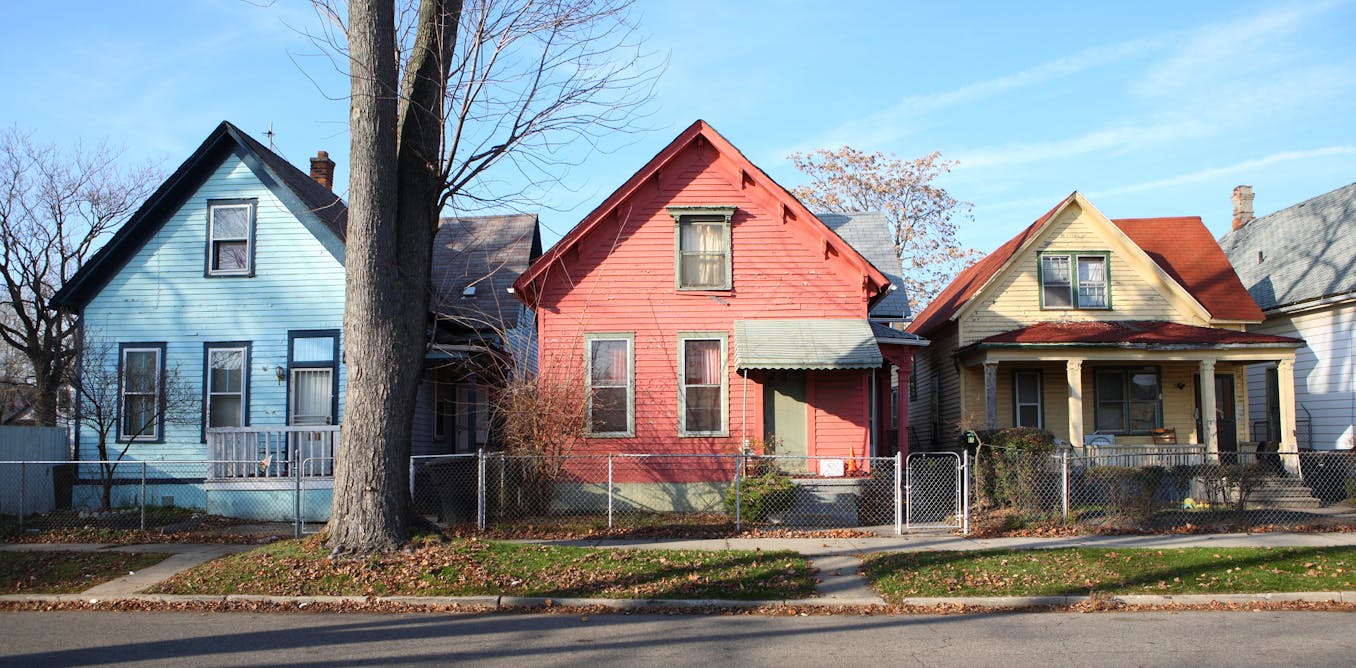Detroiters who deal with soaring rents, weak residing conditions and systemic obstacles to affordable and secure housing are at increased risk of bad wellbeing, our exploration finds.
We analyze the connection in between housing inequities and health, with the intention of informing local, state and nationwide coverage. Our target is on how interdisciplinary research on housing relates to fairness in overall health, race, cash flow and growing older.
Housing instability can get a lot of sorts, together with living in overcrowded or insufficient situations, having to make recurrent moves or investing the bulk of house earnings on a position to stay. These stressors can direct to an elevated chance of eviction, homelessness, lousy mental overall health and even physical disease.
Fifty percent of Detroit’s people are renters who gain a median residence money of $26,704, approximately $13,000 reduced than Michigan’s median, in accordance to American Neighborhood Survey details.
We also located that 60% of renters in Detroit are price-burdened, that means they invest additional than 30% of their profits on housing-related fees, together with lease and utilities.
A legacy of discriminatory housing methods
These troubles didn’t develop right away. Detroit’s recent racial housing inequities are motivated by the legacy of redlining. Redlining refers to the federally sponsored follow of banking institutions and insurers refusing or limiting loans, mortgages and insurance plan inside Black neighborhoods.
The effects ended up long term. As just lately as 2019, previously redlined places experienced pretty much 30% decreased homeownership costs and a $60,000 difference in median home earnings as opposed with largely white areas that had been furnished with much better possibilities commencing approximately a century in the past.
Outside of the monetary consequences, research also reveals that the exercise of redlining in Detroit is affiliated with self-reported bad well being, heart disorder and very poor vision among current inhabitants of these spots.
Tax foreclosures sales opportunities to weak overall health outcomes
Discriminatory housing tactics continue on now, frequently having the form of foreclosures and evictions.
In the earlier two decades, Detroit has professional one particular of the best tax foreclosure fees in the country.
At the peak of the foreclosure crisis in 2015, roughly 6,408 owner-occupied properties were repossessed by financial institutions, displacing those Detroiters and putting them at a increased danger of inadequate psychological health and fitness.
This has led to additional income at auction to buyers and speculators, who tend to evict much more tenants than other types of landlords and to enable their houses to tumble into disrepair.
Eviction, weak housing quality and health and fitness
Detroit noticed about 30,000 eviction filings every year in advance of the COVID-19 pandemic.
Soon after a couple yrs of respite thanks to pandemic-era housing procedures, evictions have climbed back towards prepandemic levels. In 2023, additional than 20,000 Detroiters had evictions filed towards them.
Study connects eviction to a selection of poor physical and mental overall health outcomes.
Even the Detroiters not at chance of eviction frequently pay growing rental expenditures for lousy-quality housing irrespective of tries by the town to apply a rental ordinance necessitating landlords to sign up and get a certification of compliance with Detroit’s rental ordinance.
Investigation demonstrates that 9 in 10 pandemic-period eviction filings included properties not in compliance with area wellness and safety codes, which includes those people that control guide hazards. At the exact same time, significantly of the housing inventory proceeds to decline as it ages and compliance endeavours are not very well enforced.
Some who are evicted have nowhere to go. In January 2023, 1,691 Detroiters had been dealing with homelessness, growing their hazard of mental overall health issues, ailment and even death.
Procedures that have labored
There is some superior news. Tax foreclosures in Detroit have diminished noticeably from the peak of the tax foreclosures disaster.
We partly attributed this to the pandemic-period moratorium on tax foreclosures initiated by the Wayne County Treasurer’s Workplace, which ended in 2023. The county also oversees the Michigan Home-owner Assistance Fund and plans such as Pay As You Stay and the Detroit Tax Reduction Fund, which have aided very clear tax credit card debt for householders.
Programs this kind of as Detroit’s Property owners House Exemption system have exempted some minimal-cash flow householders from spending assets taxes in an energy to avert tax delinquency.
Nonetheless, our investigate displays that irrespective of attempts to elevate recognition about these courses, handful of qualifying households accessibility them. This destinations them at threat for foreclosures and feasible displacement.
New coverage directions
Detroiters’ resilience and persistent advocacy have led to significant wins for housing justice, encouraging to translate local community fears into metropolis plan.
In 2022, people effectively arranged for the proper to counsel for qualifying very low-money Detroiters dealing with eviction.
The town could also follow the lead of other U.S. towns this kind of as Philadelphia by discovering eviction diversion and mediation versions to cut down eviction filings.
A lot more qualified efforts are also wanted to make investments in Black homeownership to guarantee security and stimulate extensive-term home.



